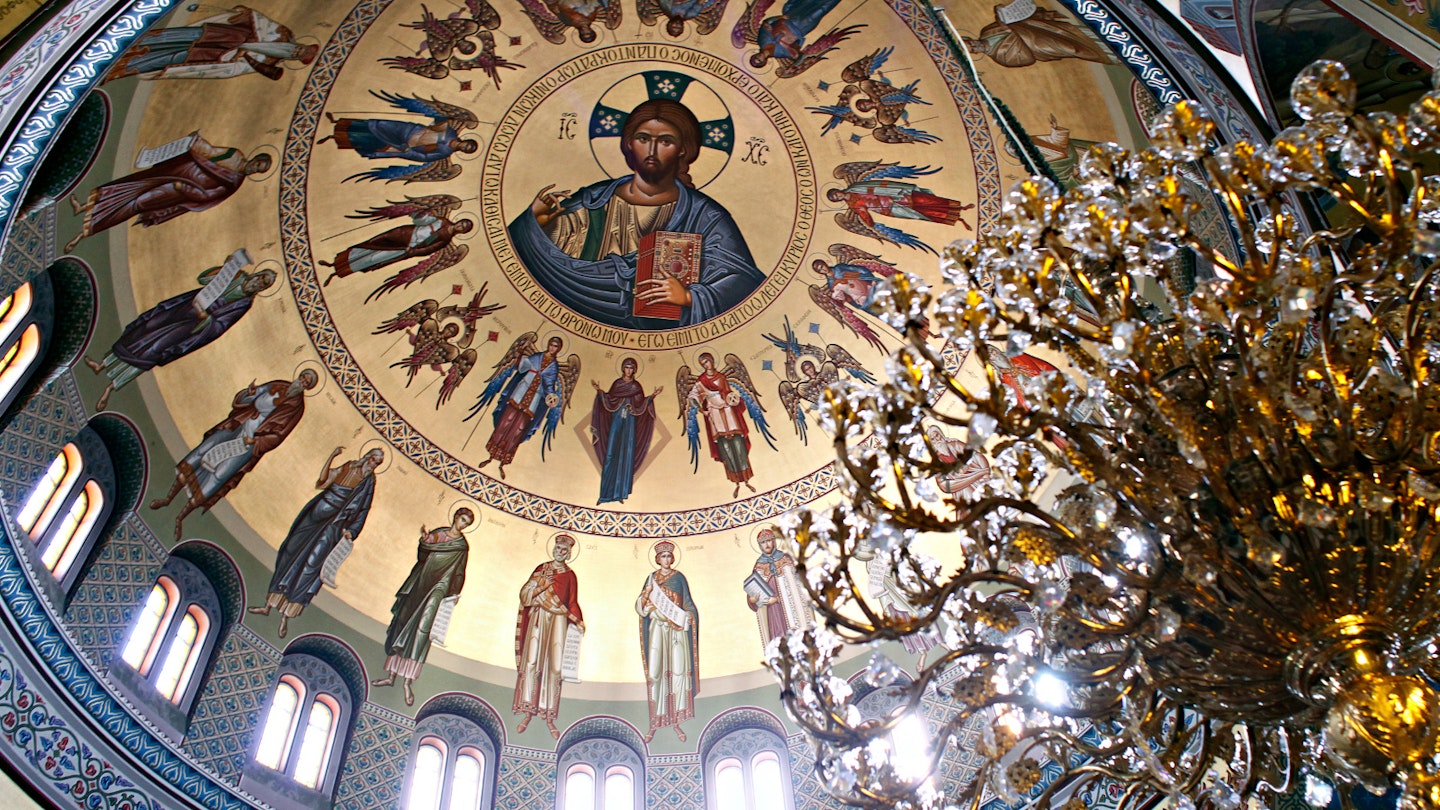Experience Easter in Greece with GoTravelDaily
For the Greek Orthodox Church, Easter (Pascha; 28 April 2019) is the biggest religious festival of the year, celebrated with utter reverence and almost total participation. The Holy Week serves as the climax of Lent, a period of devoutness and church attendance, even among those who aren’t deeply religious. The Resurrection symbolizes the seasonal return of life in nature after winter, reflecting the blooming glory of spring, where the floral scents in the warm air enhance the spirituality of the event.
Feel the Mood in Athens
All Athenian churches hold evening services during the Holy Week, making it an excellent time to immerse yourself in the beautiful and uplifting Orthodox hymns.
Church of Agios Georgios on central Karitsi Square and Agia Irini Church on Aiolou Street have vibrant choirs, attracting large crowds each night. Additionally, hundreds of churchgoers gather outside the small Byzantine Church of Kapnikarea on Ermou Street, while the scenic old Agios Dimitrios Loumbardiaris in Filopappou Hill’s woods offers stunning views of the Acropolis.
For the midnight service, celebrating Jesus Christ’s resurrection, the small Chapel of Agios Georgios atop Lykavittos Hill provides a 360-degree view of the city, accompanied by a spectacular display of fireworks over Athenian parishes. Alternatively, the Church of Agioi Anargyroi in the Acropolis foothills is the first to receive the Holy Fire, the flame from the Church of the Holy Sepulchre, believed to come from Christ’s tomb, drawing huge crowds.

Fasting and Feasting
Good Friday is a day of universal sanctity in Greece, where shops typically remain closed until afternoon. This day is considered the pinnacle of Lent; yet, in a modern and somewhat less religious interpretation, many Athenians crowd into fish restaurants and ouzeries to indulge in ample ‘fast-friendly’ seafood. Notable dining options include Varoulko in Piraeus and Zisis Fish in Monastiraki.
At midnight on Saturday, following the Resurrection Mass, it is customary to enjoy warm magiritsa (lamb tripe-and-offal soup). Many restaurants in the city centre and larger hotels are open, offering special menus for the returning churchgoers.
Easter Sunday features lamb in various forms, either roasted whole on a spit or served chopped and grilled. A great spot to experience this feast is Steki tou Ilia restaurant located in Thisio. Guests can enjoy wine, beer, and ouzo, while throughout the day, countless red eggs are cracked against one another, a tradition that symbolizes Christ’s resurrection.

Easter Celebrations Outside Athens
While Athens presents an engaging experience during Easter, many Greeks prefer to celebrate away from the bustling cities, favoring small towns and villages for a more devout and intimate atmosphere. For those seeking an authentic Greek Easter experience, several nearby destinations can be easily reached on a day trip from Athens. It is important to plan ahead, as this period traditionally marks a significant exodus for Athenians after the summer peak season in August. One of the most notable locations for Easter celebrations is the Monastery of St John the Theologian on Patmos island, known for hosting one of the largest Easter celebrations in Greece.





